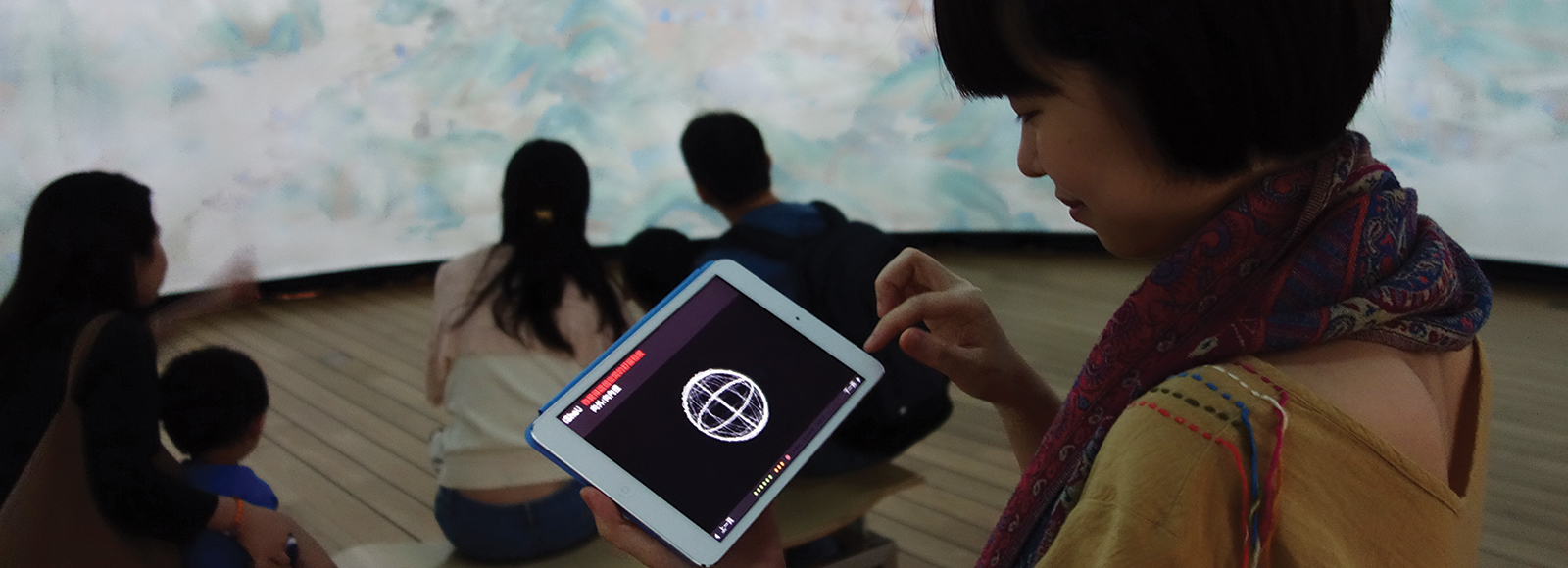
UNSW Professors Sarah Kenderdine and Jane McAdam joined U2 front man Bono and politicians including Justin Trudeau and David Cameron at a meeting of the world’s most influential leaders in Switzerland in January.
The World Economic Forum (WEF) Annual Meeting 2016 in Davos – Klosters, brought together the world’s top leaders in shaping global, regional and industry agendas.
The Forum was started by the academic Klaus Schwab in the 1970s and now hosts more than 2,500 participants, of which more than 1,000 are chief executives or company chairs and more than 40 are world leaders. This year's leaders included Bill Gates, the Greek prime minister Alexis Tsipras, Canada's Justin Trudeau and the UK's David Cameron as well as actors, Leonardo de Caprio and Kevin Spacey.
Professor Kenderdine is a pioneer in interactive and immersive experiences of cultural heritage, and is director of UNSW Art and Design’s IGLAM Lab (Laboratory for Innovation in Galleries, Libraries, Archives and Museums).
She collaborated with WEF in China last year, presenting her exhibition Pure Land: Inside the Mogao Grottoes at Dunhuang, an immersive, full-dome, digital reproduction of the 1,500 year-old Buddhist murals in the UNESCO world-heritage listed caves, one of China’s most revered historical sites.
This year, Professor Kenderdine briefed the international meeting on the latest developments in the digital preservation of cultural heritage.
“Globally, cultural heritage is under increasing threat from destructive forces spanning iconoclasm to climate change. While the annihilation of heritage has been with us for thousands of years it remains one of the most powerful socio-cultural weapons of our times,” she says.
Professor Kenderdine joined the Director-General of UNESCO, Irina Georgieva Bokova and Terry Garcia, Chief Science and Exploration Officer at National Geographic, as well as the Director of London’s Victoria and Albert Museum Martin Roth in a panel discussion on how world heritage sites can be protected from catastrophic destruction.
In a separate presentation, Digital Masterpieces, Professor Kenderdine revealed how breakthrough technologies are changing our personal relationship with art and heritage.
“My research is focused on experimental interfaces for museums that allow audiences to rediscover and reinvent ancient cities and cultural objects.
“At IGLAM we have exceptionally powerful tools to recreate precious objects in 3D and to capture art in a way that lets us zoom in on the tiniest brushstroke, to reveal more than the naked eye could ever perceive. But this alone is not enough; it’s about creating new narratives of engagement that will ensure heritage is relevant today and not just an aesthetic fascination or nostalgia.”
Professor Kenderdine also trialled her I Sho U app, an evaluation tool created with Swinburne University’s Design Factory to help museum and gallery visitors record their experiences. The app uses a network to stream audience feedback and display it on a website in a visually compelling way in real time.
“I Sho U creates a ‘pulse’ of user responses, dynamically aggregating, analysing and visualising experiential data. It’s a way of ‘getting under your skin’ and giving stakeholders new insights into the social, embodied and learning experiences of their audiences,” she says.
Professor Kenderdine is currently Director of Visualisation at UNSW’s new Expanded Perception and Interaction Centre (EPIC) and co-Director of UNSW’s iCinema Centre for Interactive Cinema Research. She also heads Special Projects at Museum Victoria.
A WEF Young Global Leader since 2013, Scientia Professor of Law Jane McAdam shared her expertise in international refugee law, with refugee issues featuring prominently in the program including the current influx in Europe and potential responses by government, industry and civil society.
She presented a session with the Prime Minister of Timor Leste, Rui Maria de Araújo, titled Preparing for Climate Migration, about social, economic and legal responses to climate change-related population movements.
"Gathering together such a diverse group of people from all over the world can lead to innovative and unexpected connections, ideas and outcomes," Professor McAdam says.
Director of the Andrew & Renata Kaldor Centre for International Refugee Law at UNSW, Professor McAdam holds conjoint positions at The Brookings Institution in the US and Oxford University's Refugee Studies Centre.
She has been an expert adviser to the UNHCR, the International Organisation for Migration and the World Bank's Thematic Working Group on Migration and Development, and is an ARC Future Fellow.
The World Economic Forum Annual Meeting 2016 ran 20-23 January.
